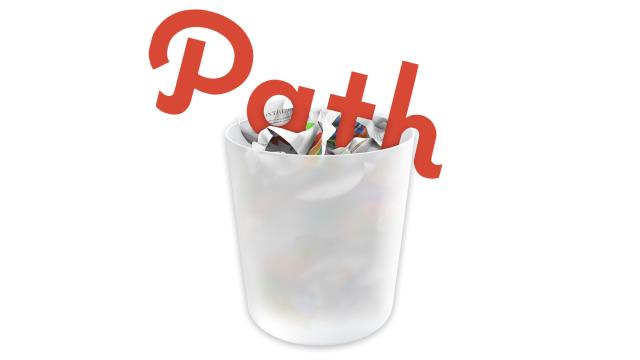For a brief moment, back in the early 2010s, Path flourished. The more personal, more private social network was once reportedly valued at $US500 million, but after years of irrelevance, it’s shutting down next month. Path unequivocally failed, but I can’t help but wonder what would happen if we gave its original mission just one more try.
The app was created in 2010 by former Facebook employee Dave Morin as a sort of anti-Facebook. It stood out with one good idea: Limits for friends. You couldn’t add more than 50 people to your network when it first launched.
As Facebook ballooned in size and our friend lists grew with it, Path sought to be the place where you chatted with only the people you were closest to.
And for a little while, the idea seemed to work. Quickly, Google reportedly tried to gobble it up. By mid-2013, Morin proclaimed that people were checking the app “over 1 billion times per month”.
Path’s minimalistic design caught my eye, but like most people, I never seriously used it. The majority of my friends weren’t on Path. They were too busy posting on Facebook and Twitter, and using neat apps such as Hipstamatic.
Path didn’t win me over at the time, but as I read the first post on Path’s blog today, I’m almost second-guessing myself.
Idyllically, the company originally hoped to be “the place you will always feel comfortable being yourself”. Without a hint of sarcasm, Path said it was a “personal network” — not a social network — where you could share “the story of your life with your closest friends and family”.
It outlined its key advantage as such: “Because Path is a personal network, we will always seek to build features which increase meaning and understanding between close friends.”
It sounds so cute today! But Path held onto its artificial friend limit for years. It was a core aspect of the app, and that friend limit surely slowed the app’s growth, restricting the network effect that helped Facebook become the nightmare it is today.
In 2010, and even in 2013, I don’t think this alone doomed Path. At the time, the company was addressing a real problem — social network fatigue — but the problem wasn’t as pertinent as it is today.
Facebook had taken over the web by then, and the rise of things such as Farmville made the service plenty irritating, but Facebook still had novelty left in it. It hadn’t yet fully taken over our smartphones and it didn’t own WhatsApp or Instagram. We were still years away from Zuckerberg’s nauseating congressional testimony.
It’s possible that Path simply arrived too early, because the need for something like Path wasn’t so pressing back then. Facebook didn’t seem entirely unbeatable yet, and the app wasn’t nearly so globally relevant.
But today, now that Facebook has become the least personal way on Earth to communicate, where semi-automated actions such as Happy Birthday wishes get corralled onto our Timelines en masse, the idea behind Path sounds charming and quaint and good. It would have been nice if Path had actually accomplished its mission, instead of persisting until now in obscurity.
According to his LinkedIn, Morin left Path in 2015. Around that time, it was bought by Korean tech company Daum Kakao. And then we forgot about it. On October 1, the app will be removed from the app stores.
Earlier this year, there was some talk about bringing the old Path back. We reached out to Morin for more information, although with the app declared dead, it sure seems unlikely.
But still, as cheesy as it sounds, I could get behind “the personal network” in 2018. We don’t need yet another iteration of Path and the company itself doesn’t deserve our sympathy. But I’d still like to try another social network like it, one that isn’t so overwhelmingly and artificially social, even though I never bothered to give it a chance in 2010.
